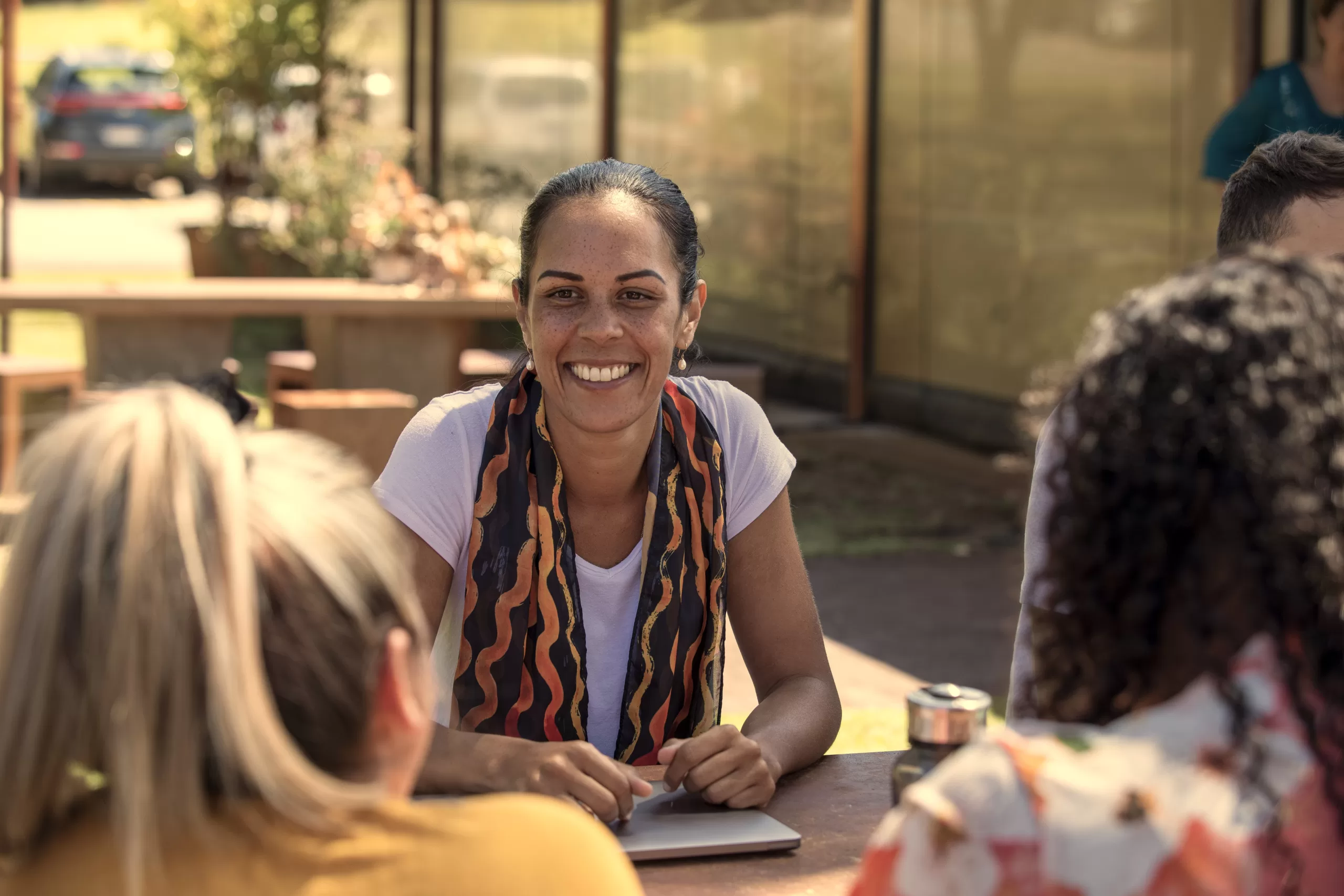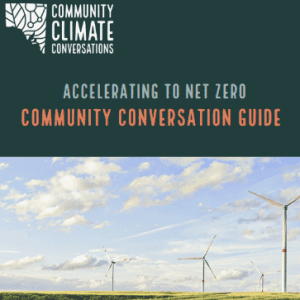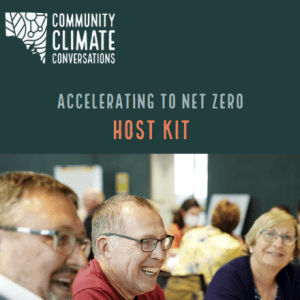The South Australian Government are embarking on work to move the state towards Net Zero by 2050 – with a target of 50% by 2030.
In 2023 we were commissioned to design and run a statewide community engagement process to :
- inform the development of strategies for reaching the Net Zero targets,
- Encourage community reflection on what action they could take to reduce emissions,
- Assist in fostering community support for action on climate change.
The process was hosted by Conservation Council SA and South Australians for Climate Action and was supported, sponsored, and funded by the Department for Environment and Water. Click below to read the final report.
The Approach
DemocracyCo designed and delivered a process that enabled a deliberative group to go ‘deep’ into the topic, and then a ‘broad’ whole of state community conversation to take place.
The engagement methodology developed for this process had three key elements:
- Community Climate Panel – demographically diverse South Australians (inline with demographics of the general population), to meet and kick start the conversation by agreeing the key issues that needed discussion.
- Community Conversation Guide – developed to support conversations
- Community Climate Conversations
Community Climate Panel
Stage 1 of the process involved bringing together more than 50 randomly selected and diverse South Australians to – kick start a statewide conversation. The Community Climate Panel identified the issues that South Australians need to talk about – to help us achieve net zero emissions.
I would also like to thank you, Emma and Emily, Craig, Judith and the Minister for the opportunity to be involved in the CCP. I thought democracyCo members showed extraordinary skill in taking a complex topic and a large bunch of people, unknown to each other, and fashioning it/us into a coherent report in a very condensed timeframe. Congratulations! ….the privilege for me was being exposed to younger electors whose thinking seems more supple, bipartisan, and complex than I’m used to amongst my peers.
Lizzie, Community Climate Panel
Community Conversation Guide
The Panel’s work was brought together with information about the causes of climate change and what it means for the future of South Australia in a Community Conversation Deliberative Guide (the guide). The guide was developed by democracyCo, to assist and support broad community conversations about climate and what we should do to address it.
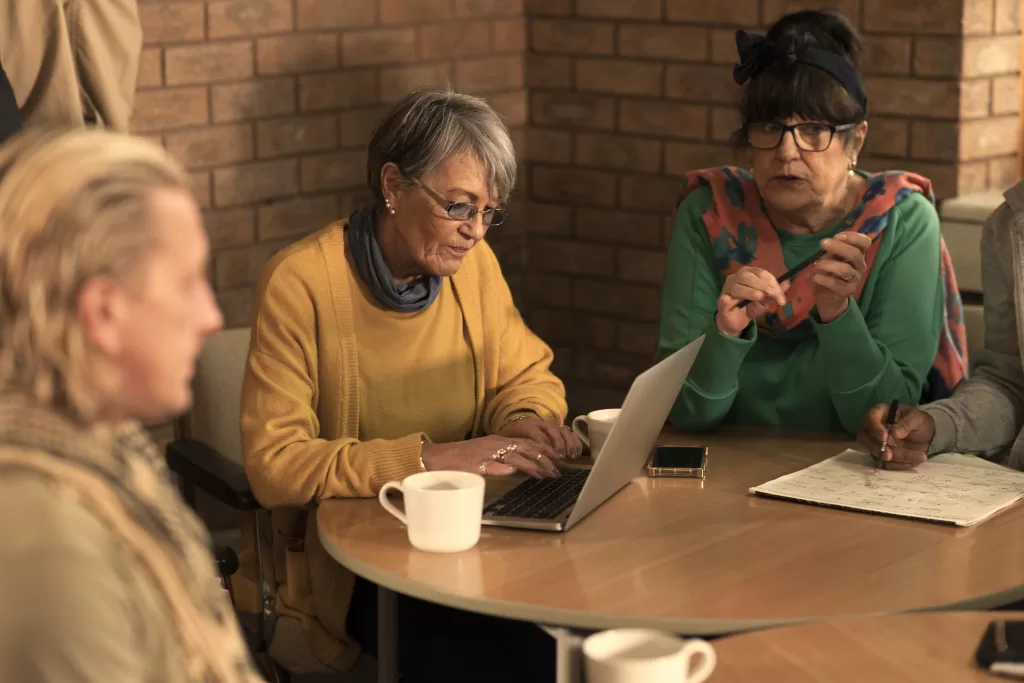
Community Conversations
Community Conversations occurred from September – December. Anyone in South Australia could host a Community Conversation and project partners reached out to their diverse networks in the education, faith, arts, multicultural, industry and community sectors to encourage broad take up and participation.
What is a Community Conversation?
A Community Climate Conversation is a small group of people who get together to talk through how we can reduce our emissions. The setting is up to the group! They might be friends, neighbours, colleagues, sport or faith groups, or anyone who wants to come together to talk.
Community Conversations are a way for everyone to contribute in a setting that is convenient, comfortable, and enjoyable for them. They offer the opportunity for the broadest possible range of South Australians to have open and honest conversations with each other about the things that matter to their communities.
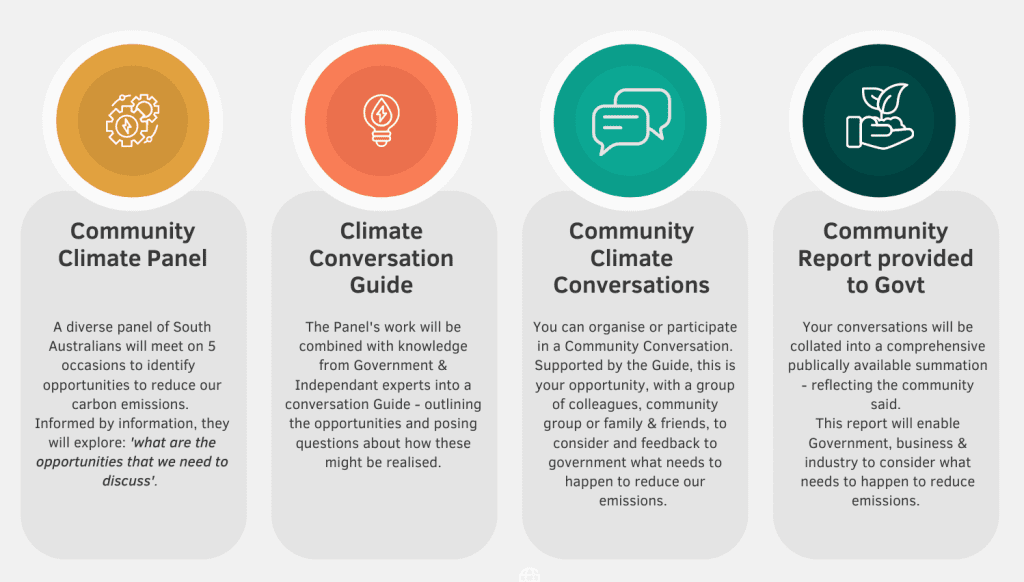
Outcomes
Outcomes
750+ South Australians got involved through more than 100+ conversations statewide.
The quality of the input from the groups was extraordinary!
Groups spent 1-2 hours together deeply considering the issue. The responses were well-considered, detailed and holistic articulations of a complex problem, and the potential solutions.
They were full of bright ideas and concern for fellow community members who may be left behind. They carefully considered their wishes from the viewpoints of all stakeholders and while they foresaw the need for big changes, they also balanced the need to bring everyone (community and businesses) along on the journey. Click below to read their report.
